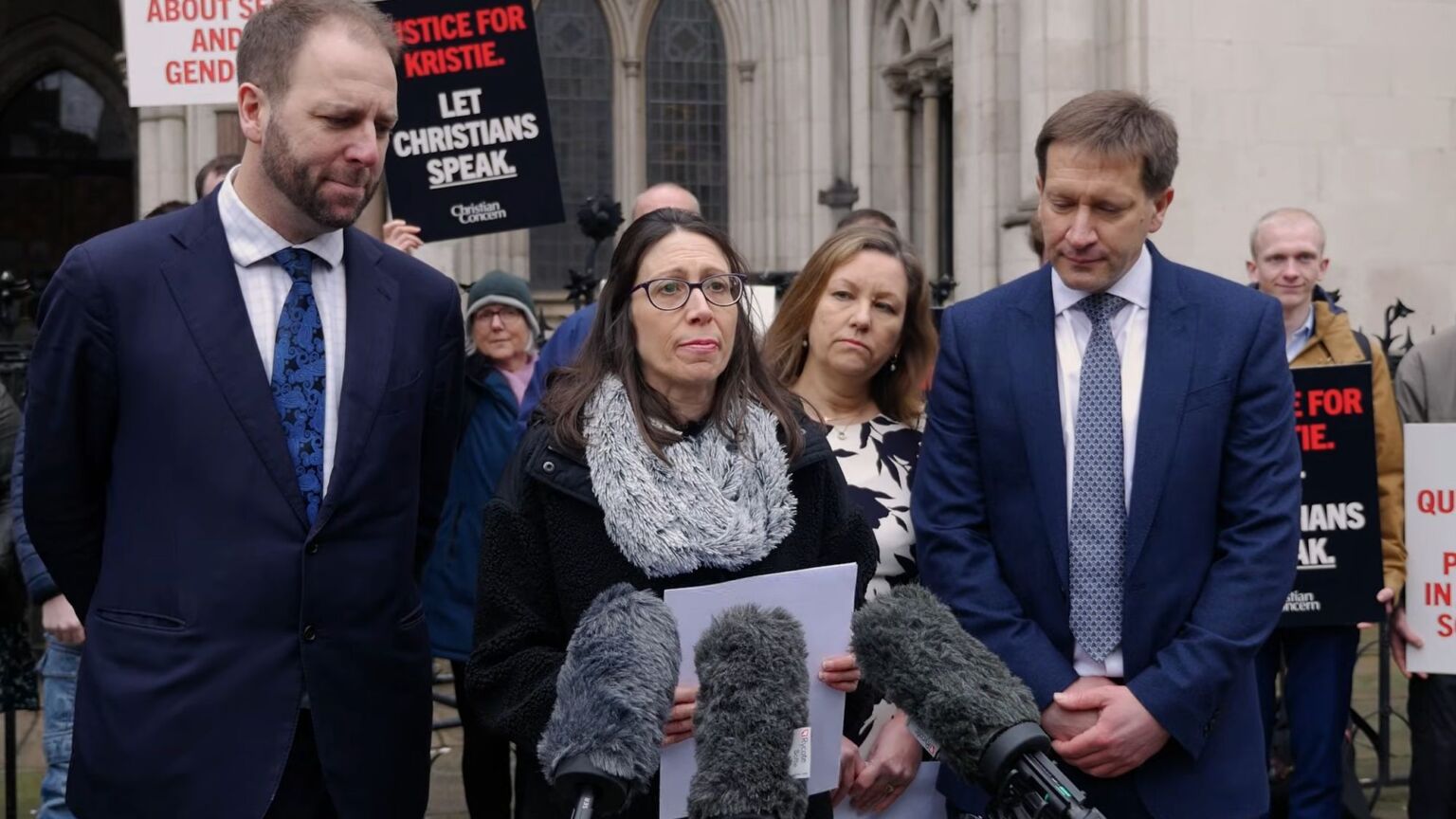Sacked for being a Christian
After a long court battle, Kristie Higgs has struck a major blow for free speech.

Want to read spiked ad-free? Become a spiked supporter.
The Court of Appeal handed down a landmark victory for free speech and freedom of religion last week.
Six years ago, Kristie Higgs was sacked as a pastoral administrator and work-experience manager at Farmor’s, a secondary school in Fairford, Gloucestershire. She had shared posts on her personal Facebook account raising concerns, in accordance with her Christian faith, about the teaching in schools of ‘genderfluidity’ and the view that same-sex marriage is the same as marriage between a man and a woman.
Following an anonymous complaint in 2019 from a parent of a school pupil, Farmor’s gave Higgs the sack. She subsequently took a claim of unfair dismissal to an employment tribunal in 2020, but it ruled against her. She then took her case to an employment-appeal tribunal in 2023, which overturned the original decision before sending the case back to the tribunal for a fresh decision. Higgs’s lawyers decided that, rather than go through the tribunal process again, they would take the case to the Court of Appeal instead.
This month, the Court of Appeal finally found in Higgs’s favour. On Wednesday last week, three judges ruled that dismissing an employee ‘merely because they have expressed a religious or other protected belief’ constitutes ‘unlawful direct discrimination within the meaning of the Equality Act’. Higgs has welcomed the ruling as ‘a landmark day for Christian freedoms and free speech’.
A victory of this nature has been a long time coming. In recent years, there have been many cases of Christians being punished by employers for expressing their sincerely held beliefs outside of work. Felix Ngole was stopped from becoming a social worker because he posted on Facebook about his opposition to same-sex relationships. Richard Page was suspended and effectively sacked from his job as a non-executive director of an NHS trust because of his public opposition to same-sex adoption. These significant cases were supported by myself and my colleagues at Christian Concern and the Christian Legal Centre. Both went to the Court of Appeal. Felix won but Richard lost.
The differing outcomes in these two cases showed just how inconsistent the courts had been on questions of religious expression. Their reasoning had become increasingly difficult to understand. Christians couldn’t tell where they stood in relation to the law. They didn’t know if personal social-media posts expressing their beliefs could cost them their jobs or not.
That’s why last week’s Court of Appeal judgment feels like a weight has been lifted. Fundamentally, it reminds everyone that Christians and others do actually have a meaningful right to free speech. They have the right to express their beliefs without fear of reprisals from their employers. Even if an employer disagrees with a belief or how it was expressed, the employee still has meaningful legal protection.
This judgment immediately sets an authoritative precedent for many other employment cases. Until or unless it is contradicted by the Supreme Court, it is the foremost expression of the law as it stands. It will be used by more junior courts and in workplaces to allow us all greater freedom to speak our minds.
This is a win for everyone, but especially for Christians. Christians like me have plenty to say and are well aware that not everyone will like it. We know full well that by the time we’ve shared our views on gender or abortion or assisted suicide, just about everyone is ready to kick us out of the metaphorical dinner party. Still, at least we now know that we’re a bit less likely to lose our jobs.
Paul Huxley is communications manager at Christian Concern.
Who funds spiked? You do
We are funded by you. And in this era of cancel culture and advertiser boycotts, we rely on your donations more than ever. Seventy per cent of our revenue comes from our readers’ donations – the vast majority giving just £5 per month. If you make a regular donation – of £5 a month or £50 a year – you can become a and enjoy:
–Ad-free reading
–Exclusive events
–Access to our comments section
It’s the best way to keep spiked going – and growing. Thank you!








Comments
Want to join the conversation?
Only spiked supporters and patrons, who donate regularly to us, can comment on our articles.